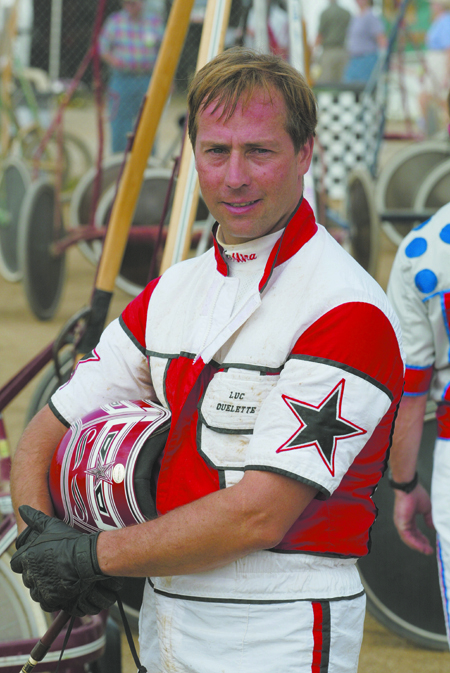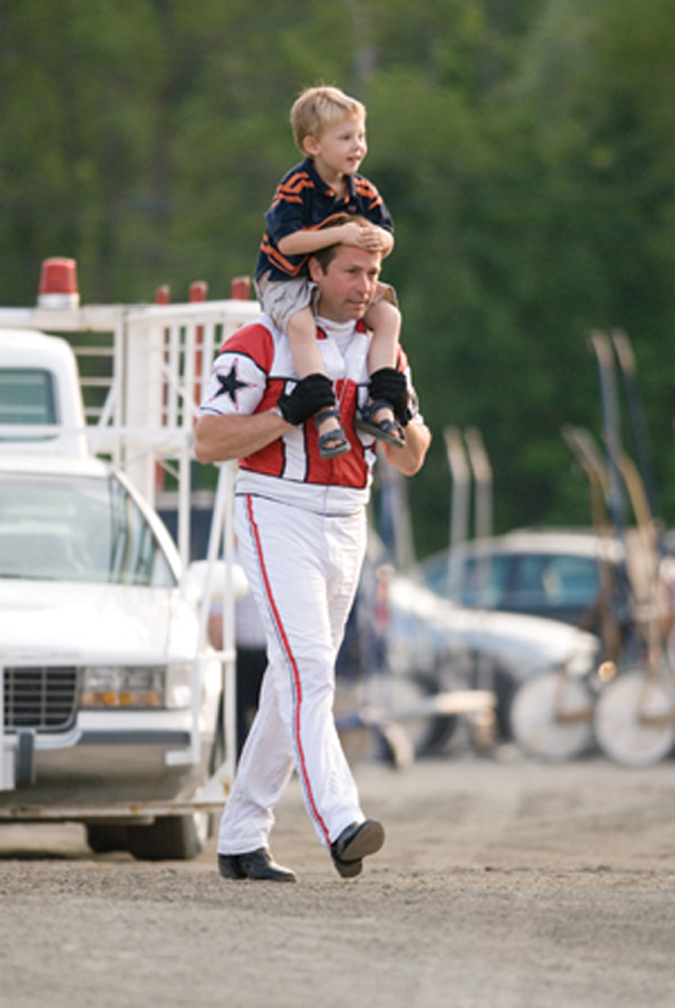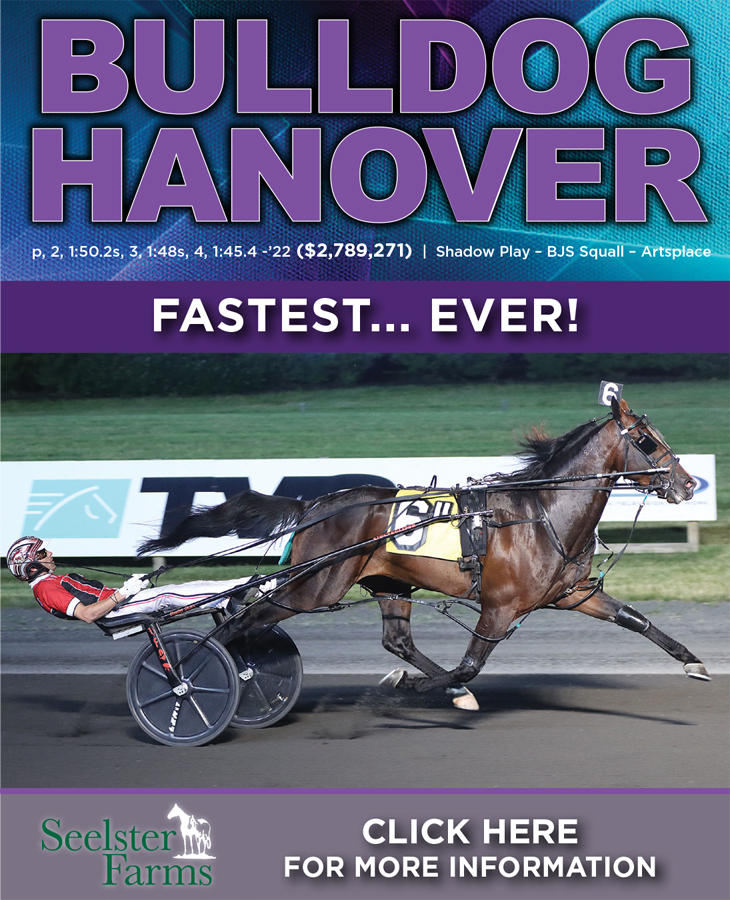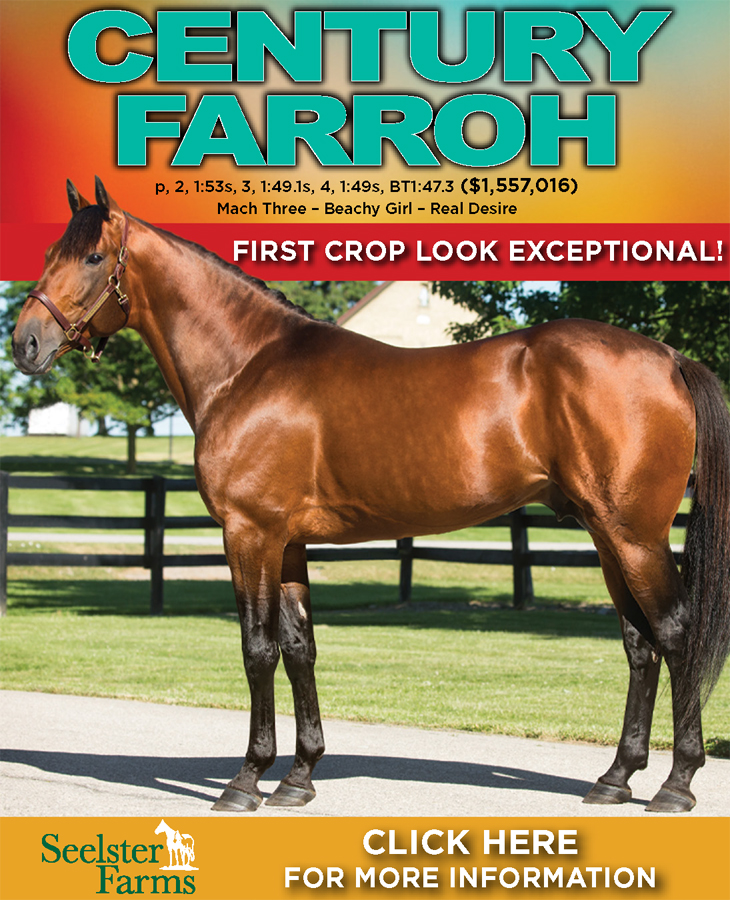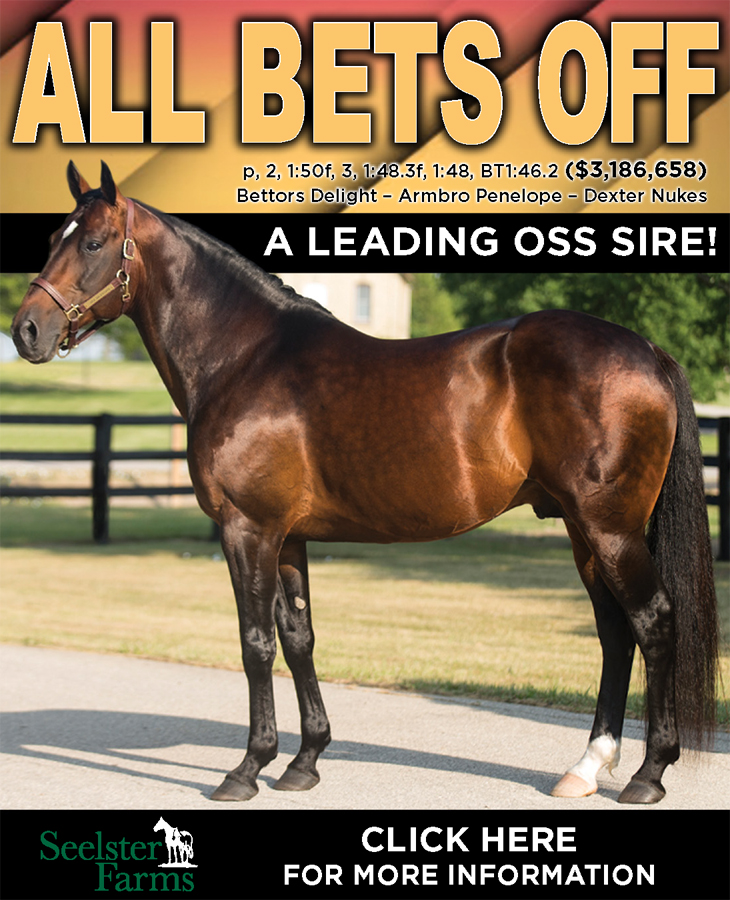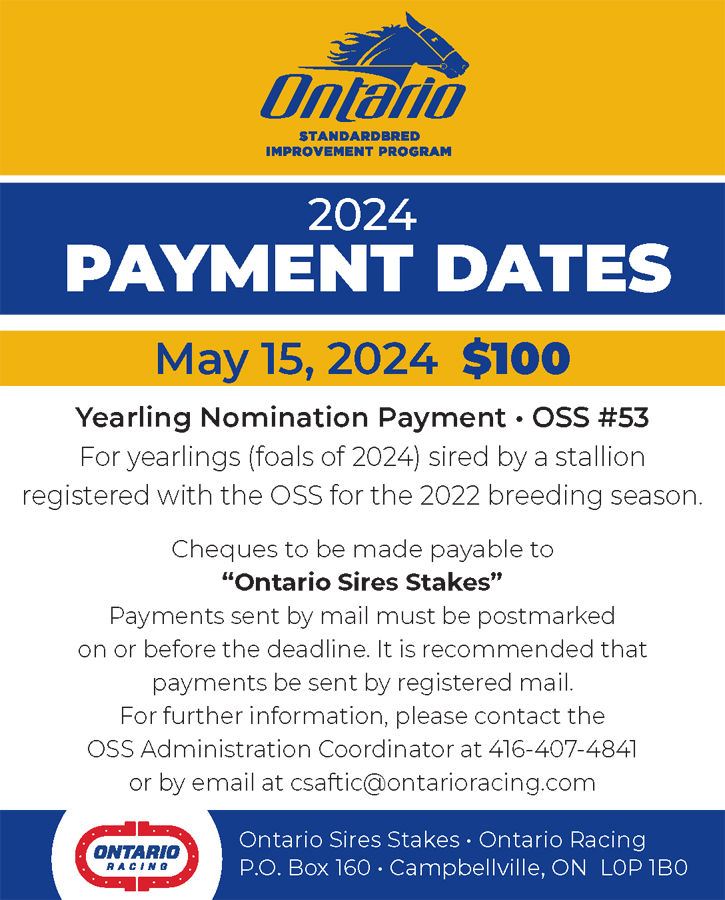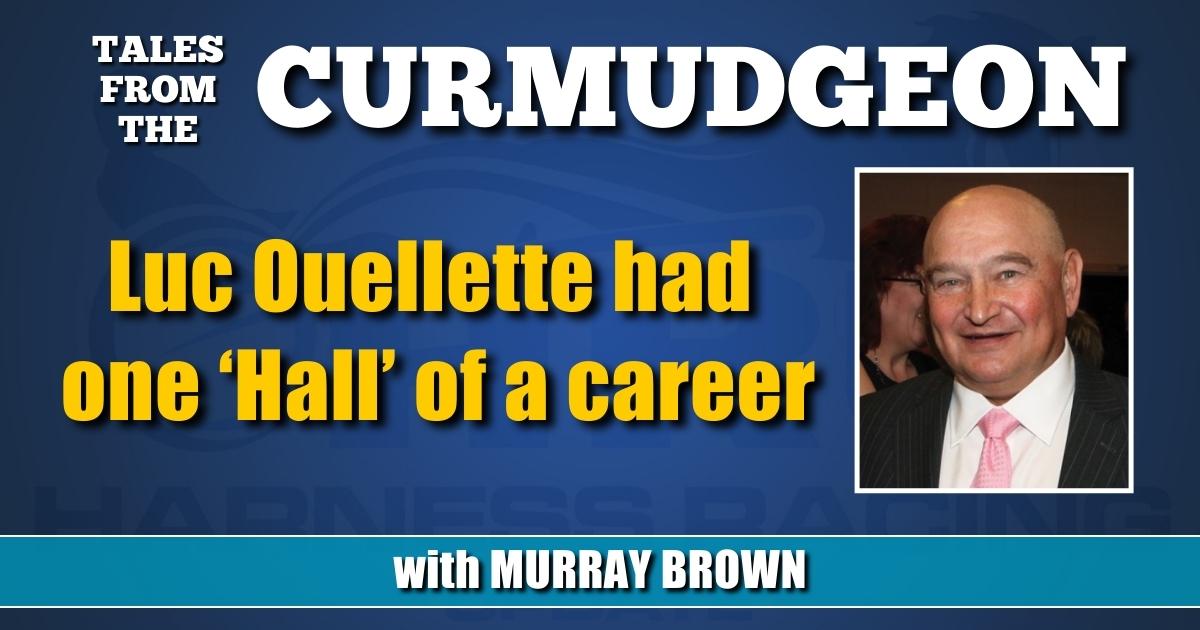

Luc Ouellette had one ‘Hall’ of a career
by Murray Brown
I recently asked Luc Ouellette how it was possible that a driver with his credentials was neither in the Hall of Fame at Goshen, nor in the Canadian Horse Racing Hall of Fame.
Consider the facts:
Ouellette has driven the winners of 8,589 races and the winners of $130,044,157: That is over 130 million dollars.
In 1995 and 1996, he was Harness Tracks of America’s Driver of the Year.
In 2004, he was the Canadian Driver of the Year.
In 1999, he led all drivers in earnings with $10,834,745.
In each season of the 10-year span between 1997 and 2006, horses driven by him won between 228 and 336 races per season and earned between $5,477,177 and $10,834,745.
He has a lifetime UTRS of .288.
On July 22, 1995, he won nine races on a single race card at Yonkers Raceway, a record that still stands today.
Why do you think you haven’t been chosen for the Halls?
“If I were guessing, I’d say that perhaps the main reason is that I’ve probably been forgotten by most of the people who are doing the nominating and installing. I left the arena at an age before most in this game do. I suppose that I hung around not at my best for a few years, but for not as long as some others do. When I stopped driving, I was still relatively young as drivers go. I had been hurt in accidents a few times. I stopped getting many of the good drives that had become regular for me. In this game, as I suppose it is in most competitive sports a, ‘What have you done for me lately mentality persists.’
“I wasn’t winning as much as I previously had been. When you are winning a lot, the tendency is that you get more drives. When you are not, the number and quality of your drives tend to diminish. That’s what happened with me. You could say that I had lost some of the fire and the driven ego that enabled me to stay at or near the top. You would likely be right. In order to do well as a driver, you need to be focused, almost to the exclusion of everything else. You could also say that I might have been burnt out. That would probably also be correct, at least to a degree. Probably the main reason was that my priorities in life had changed somewhat. I suppose I had enough of life in the fast lane. I was ready to settle down and enjoy life with my family. That is exactly what I’ve been able to do and have done since.”
What is life like for you these days?
“My wife Anita and I have a 45-acre farm very close to Mohawk Raceway in Campbellville. We have two children, Luc, now 19 and a college student in Carleton University in Ottawa. He is studying to become a civil engineer. Our daughter, Isabella, is 17 and is living at home. We now breed, raise and race a few homebreds for our own account. I don’t think the folks at Hanover are worrying about the competition, but I think that we’ve done fairly well for the numbers that we’ve had. On the farm we have two mares and their babies, two retired mares and a riding horse that Anita and Isabella use. We also have a couple of 2-year-olds in training that we will probably be racing sometime later this season. We don’t believe in rushing the babies, preferring that they tell us when they are ready to race. If they aren’t ready to race at 2, we can wait until they are ready. I think that we’ve been fairly successful in what we do. From our modest group of mares, we’ve probably raised about 25 horses who have earned somewhere around $3 million.”
Do you miss driving?
“I would say no. I know that I could not do as well as the young men we now have driving for us do. I did well in my time, but my time is over.”
Who were the greatest drivers in your era? What made them great?
“I’m not about to rate them, but in no particular order I’d have to mention: Carmine Abbatiello, John Campbell, Walter Case, Herve Filion, Mike Lachance, David Miller, Bill O’Donnell and Ron Pierce. There are others who I am not purposely leaving off the list.
“The first prerequisite to becoming great is natural talent. That is something that you either have or you don’t. Chances are if you don’t have it, you never will. From that point forward, you need to build on it. You can build in many ways. One of those ways is to learn by watching and learning from your competition. Another large factor is mental acuity. You have to believe in yourself. You need to have self-confidence and assuredness. You also need to be smart: not necessarily book smart, but smart on the racetrack. Another factor is the ability to forget or as Herve so aptly stated it, the ability to turn the page. All drivers, even the best of them make mistakes. More often than not, the best ones will learn from their errors and rarely repeat them.”
How about the greatest horsemen you have known?
“There are two that really stand out: Jean Pierre Dubois and Jimmy Takter. DuBois is quite possibly the greatest all-round horseman that ever lived; not only in harness racing, but in all equine pursuits. He has reached the summit in harness racing, thoroughbred racing and even with jumpers. He is not only a great hands-on horseman, but he also has been able to excel in breeding, equine business, horticulture and just about everything related to raising and racing horses. Jimmy Takter has earned his achievements almost entirely in our sport. I have no doubt that if he tried anything else horse related, he would excel there as well.”
When breeding horses, what do you look for?
“With mares, they must have redeeming qualities. We operate on a fairly restricted budget. It’s quite difficult to get and be able to afford all that you would like to have in a broodmare. The mares that have it all are usually beyond our budget. Given my wishes I’d like to have a combination of a great pedigree, beautiful looks and ability on the racetrack. At a minimum I’d like to have two of the three, but sometimes even that is unattainable. At the least I’d like to have at least one of those qualities, but have it in spades.
“When looking at stallions I want proven production combined with affordability. There are some stallions who have it all, but they are often priced out of what we can afford. I like a horse like Shadow Play. He produces good-looking, sound horses who get to the races. If they aren’t stakes horses, they often will become good solid racehorses. Once in a while a horse like that will sire lightning in a bottle and you will get a horse like Bulldog Hanover.”
You have been nominated before and are among the 20 names on the list sent to USHWA’s membership as possible 2023 nominees for the Hall of Fame in Goshen.
“It is something that I have no control over. If it would happen, I would be thrilled, honored and humbled.”








